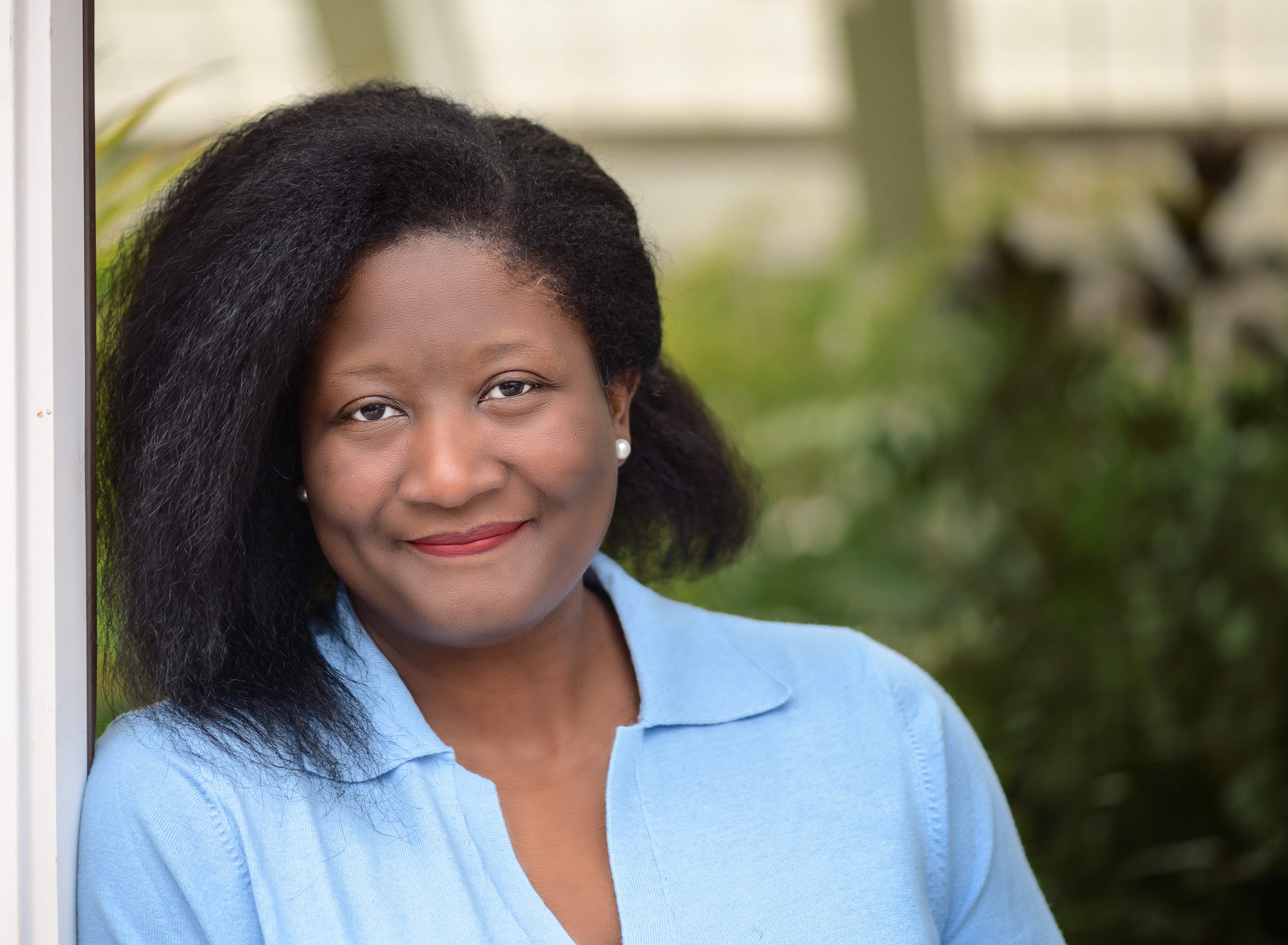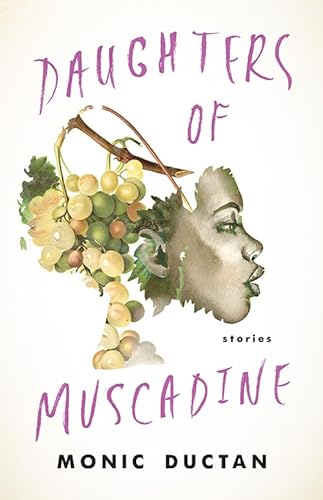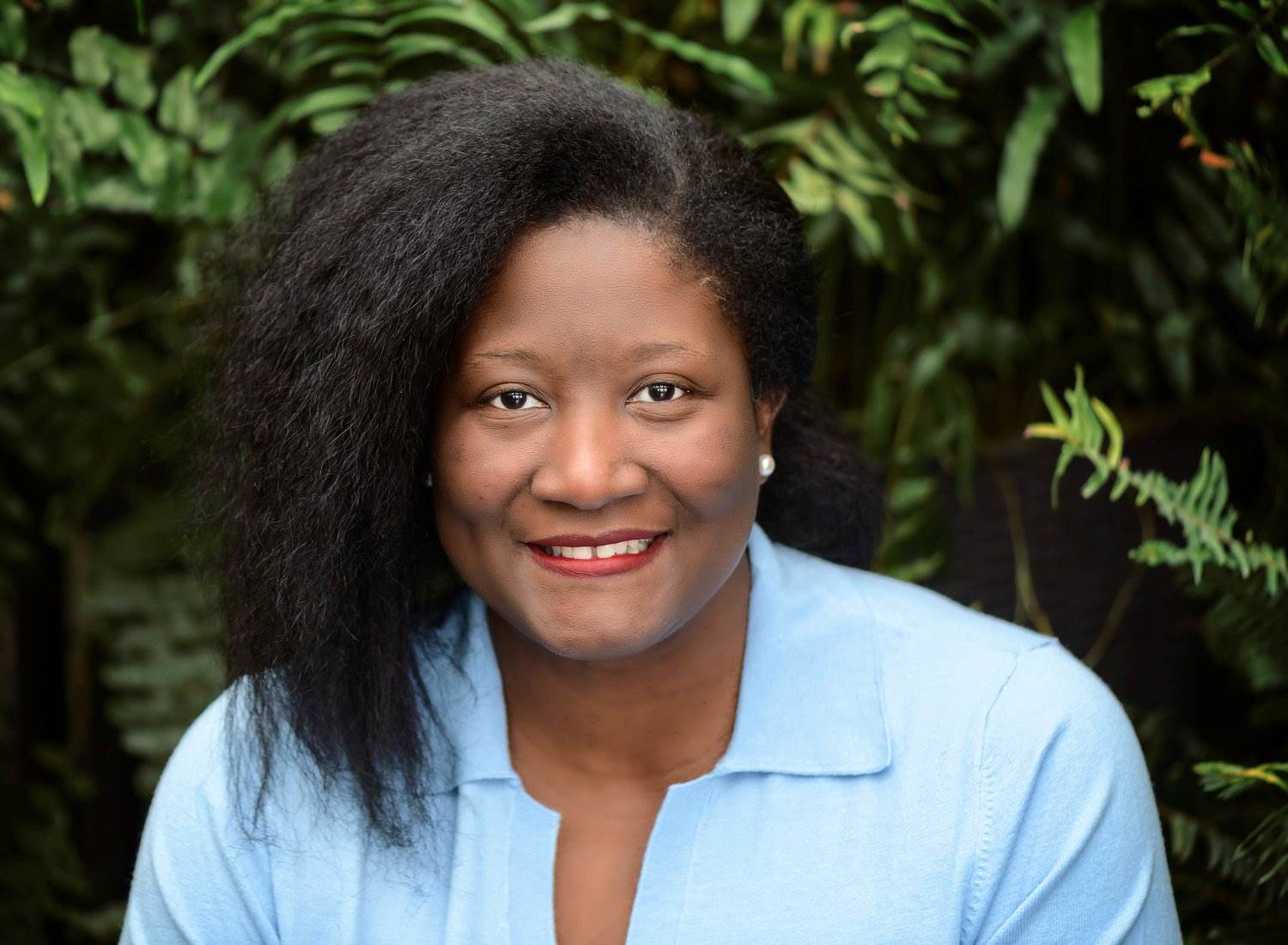A Writer’s Destination: The Literary Journey of Monic Ductan
By Z.T. Mitchell
Writing is a part of our everyday lives. We send emails and text messages on a daily basis. We write shopping lists and sign our names on important documents. We even, if you’re in my shoes, write college essays and papers on a wide variety of topics.
But creative writing is an art.
As humans, we have the gift and ability to use the deeper recesses of our brains to explore the wonderous and imaginary. Creative writers harness both and mold them to shape the image they wish to impress upon the world. Whether it be shaping words to create worlds or teaching future generations how to perfect their craft, Dr. Monic Ductan holds both like pens, composing both the fictional and actual with masterful precision.

I had the pleasure of talking with Monic about writing, life, accomplishments, challenges, the books we’re working on, and the books we love. Her first published work, Daughters of Muscadine, is releasing on November 14th of 2023. In the collection of nine short stories all centered around Black, working class, Appalachian women, a lynching and a drowning will forever change the fictional town of Muscadine, Georgia. While each story can stand on its own, they are all connected to a larger plot and conclusion that is sure to satisfy readers who stick with Monic’s characters through the book’s end.

When it came to discussing her soon-to-be-published collection, Monic’s smile never left her face, and her excitement about the book fueled my own. I have never spoken to a writer with such a passion for writing or Appalachian heritage. I knew immediately by the glint in Monic’s eye that she’d written a collection that matched her aspirations and that it will be an important book in the literary landscape.
All artist’s stories have a starting point. Monic recalled her past, both what it was like growing up and what made her take up writing. Born to parents Nathaniel and Anne Ductan, she grew up in Commerce, Georgia in the foothills of the Appalachian Mountains. “We were a working-class family,” Monic told me. “Similar to the characters in my collections of stories. My time in Commerce really shaped what I would later write. But I have always loved reading, ever since I can remember. I wanted to be a writer, but I didn’t know any writers and I felt it would be such a difficult thing to accomplish. I decided to pursue a career in teaching because it was much more practical.”
And pursue Monic did. Wanting to keep to her love of English, Monic obtained her Bachelor of Arts in English at Georgia State University in 2005. However, she quickly came to realize after taking creative writing courses that writing seemed more plausible, and so began to write off and on.
“I became more serious in grad school,” Monic said, talking about her time at Georgia College in Milledgeville, the very same school Flannery O’Connor, one of Monic’s favorite writers, had attended. Now focusing on her Master’s Degree with an emphasis on creative writing and fiction, Monic began to hone her craft in writing workshops. While she focused on fiction as her primary love and concentration, she also dabbled in nonfiction and poetry. One particular essay about her “granddaddy” titled, “Writing My Way Out of the Past” was published online by Lunch Ticket and was a finalist in their contest while Monic was in her MFA program. Her creative thesis, Everything Foreign, a collection of short stories, was published by Bartleby Snopes Magazine in 2013. Monic graduated from Georgia College in 2015 with a Master’s in Fine Arts, Creative Writing.
“I have never spoken to a writer with such a passion for writing or Appalachain heritage.”
– Z.T. Mitchell
But it was in between college life and endless essays that Monic had begun to develop an idea for a larger collection of stories, each separate but interconnected. “It was one of those ideas that stayed in my head that I constantly thought about,” Monic recalled. “Half of what would become my book came from those writing workshops I took consistently in college.”
But Monic had set her eyes on a grander challenge far above obtaining her Master’s Degree: a Ph.D. in English at the University of Southern Mississippi. “Attaining the Ph.D. was a challenge for me,” Monic said. “I was a single mother, and I didn’t come from the sort of background where I could afford to quit my regular job and take on a full-time degree program. I didn’t start my master’s program until I was thirty, so I finished the Ph.D. at thirty-six. I taught part-time while studying in my Ph.D. program, and I worked at a local library to help make ends meet. A Ph.D. requires lots of reading and writing, as you would imagine. Very time-consuming. I’m glad I stuck with it, though.”
As someone who often wonders what I would like to do once I obtain my Bachelors in English, I have often wondered if I would like to strive for such a goal. But Monic’s determination lit a fire inside me that makes me hopeful that I might one day earn a Master’s Degree or even a Ph.D. Maybe if I approach writing with Monic’s constant courage and determination.
Graduating in 2018 with that coveted Ph.D., Monic is now an Associate Professor of English at the Tennessee Technological University where she teaches such courses as Intro to Creative Writing, Fiction and Nonfiction Workshop, College Writing, and American and African American Literature. Her creative dissertation, Gullah Babies, one of the nine stories to be featured in the upcoming Daughters of Muscadine, was published in the South Carolina Review the following year.
“Dr. Ductan is very generous with her time when it comes to mentoring students,” Dr. Linda Null, Head of the Tennessee Tech English Department, told me. “Last year, two of the students in her fiction writing class won awards at the Southern Literary Festival for stories they wrote in her class. She also volunteered to teach an independent study fiction class for an English major who could not work any of the scheduled creative writing courses into her schedule. In addition, she supervised this student’s work as an intern for a journal called Under the Sun.”

I spoke with Monic a bit about her process when it comes to writing fiction, especially the characters in her collection of stories, and, while each writer takes certain approaches, Monic’s was one that I’m adopting as a way to embody and become one with the characters I pen to the page.
“I usually start with a character idea or a certain situation. I like to imagine myself walking in the shoes of my character. But I’m always thinking about people, what settings I can put them into, what sort of trouble I can get them into. In one of the stories in my book titled ‘Daughter,’ a young woman gives up her infant daughter for adoption, and she sees her again years later. So I try to ask myself ‘What if this happened?’ and ‘What would I do?’ I like to think about what I would do in my character’s shoes. Overall, a lot of my stories come from being curious about people and being curious about the world.”
I also asked Monic about the age-old plague that sets in like a cold or virus: writer’s block. But her advice wasn’t something I was expecting; it was something I didn’t know I needed to hear.
“It’s not so much writer’s block,” she said, “it’s just finding the time to write.” We both wholeheartedly agreed with the statement then and there, causing us both to chuckle. “I teach full-time, I’m a single mother with a teenage son, and I care for my elderly mother with lots of health problems who lives with us. I’m always running here and there. But if you can set aside just a little bit of time every day—just fifteen or twenty minutes—you would be surprised with just how much you can come up with at the end of the year.”
As a college student, I couldn’t agree more. I juggle five classes, work as an assistant nonfiction editor for The Tusculum Review, mow yards on the weekends, and am on the Student Advisory Board for the Center for the Arts. I’m lucky to get in a solid hour when I’m not exhausted by the end of the day, especially if I have a larger paper to write or a team project to work on. But I’ve been taking Monic’s advice and have been somewhat productive on smaller projects that don’t require much power for my addled and strained brain. I look forward to my twenty minutes.
“If nothing is coming to you,” she added, “you can always try writing prompts. There are lots of good ones online, and they’re a great starting point for people who wish to start writing. There is a magazine called Poets and Writers that has plenty for someone to get started. I couldn’t recommend them more.”
“She is known as a fantastic teacher,” Dr. Erin Hoover of Tennessee Tech and close colleague and friend to Monic said, “especially in the feedback she offers on student writing. Many of the students who are just beginning to write go on to take more writing classes or major in English because of her, and she requires them to submit their work for potential publication. That’s something I’ve started to do, too, because of her.”
In the process of preparation, before I spoke to Monic, I paid a visit to her well-organized and content-packed website (https://monicductan.com/) and was surprised to find that she blogs on a daily basis.
“Everyone always told me I had to have an author’s website,” Monic said with a wide smile and kind laugh. “I wanted to do that, but then I decided to write about whatever it was that was happening in my life at the time. I ended up posting a lot of stuff about TV shows that I was watching or books that I had recently read that I liked. It’s about books mostly. But whenever I take the notion to write about something else, I will.”
And so we came to our final question. What do you wish to focus on in the future: any big plans or accomplishments you wish to achieve?
“Absolutely,” Monic said eagerly. “I’ve been working on a novel. It branches off one of the stories and characters from Daughters of Muscadine named Lena. It takes place in Mississippi, and she becomes a 911 dispatcher working for a police department with corruption behind the scenes. Lena is trying to unravel this mystery about the day her good friend’s brother is killed by police. I’ve got a couple hundred pages so far, so we’ll see what happens.”
Monic welcomed me into her way of life and world of words. It was refreshing to talk with someone who is experienced and widely published in the realm of fiction, with publications in serious magazines and books like Oxford American and The Best American Essays (https://oxfordamerican.org/web-only/healing-slowly-in-cookeville); who has won numerous awards; who was awarded tenure; and who is so open to helping and talking with students who eagerly work on their craft, hoping to attain a spot beside her on the summit of publication.
